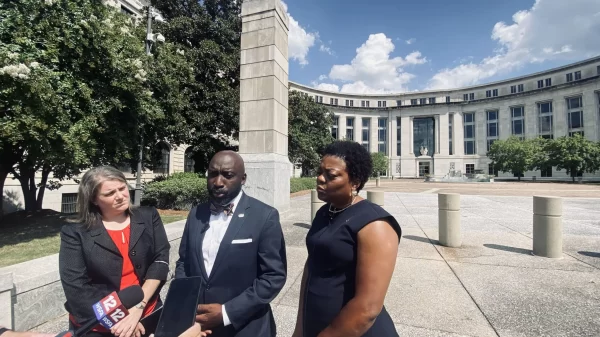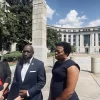Gov. Kay Ivey could release the findings of her Study Group for Gambling Policy before the end of the month, and researchers at the University of Alabama’s Education Policy Center believe any money from a state lottery should be used to help Alabama students pay for college.
The center published a report Tuesday that recommends legislators put the estimated $280 million in annual revenues from a state lottery toward an Alabama College Promise Program and an Alabama Opportunity Scholarship, which researchers say would provide scholarships for up to 56,000 low-income students and improve access to college and workforce development opportunities.
The proposed Alabama College Promise Program would spend $200 million toward scholarships for low-income students scholarships to attend two-year colleges, with $80 million going to help up to 16,000 students help pay for the cost of attending four-year institutions.
Jonathan Bowen, a research associate at the center and an author of the report, told reporters on Monday that 45 states currently operate a lottery, with Mississippi becoming the newest to do so in 2018.
“And now, all four states surrounding Alabama actually have a lottery, and they invest their proceeds into public education in some form,” Bowen said.
Researchers in this report focused on Tennessee’s lottery and education funding programs, as Tennesse bases such college aid on need rather than on merit, as is done in Georgia and Florida.
“Taking the model that Tennessee has provided, Alabama can begin to work to plug its human capital pipeline leaks, without necessarily increasing taxes on its residents,” Bowen said.
Alabama currently has no comprehensive state student-aid program and instead requires students to rely solely on federal Pell grants, savings or loans to pay for college costs. The average aid awarded to Alabama college students in the fall of 2018 was $106. Tennessee students in the fall of 2018 received an average of $2,662 in aid.
“The data shows that the Alabama average Pell award does not even come close to covering the cost of attendance for Alabama students,” said Emily Grace Corley, another of the center’s research associates and an author of the report.
Krissy DeAlejando, executive director of tnAchieves, which administers Tennesse’s lottery-funded scholarship programs, described during Monday’s briefing the positive impact such programs have had on learning opportunities for her state’s students.
“The first year of the program we saw a 4.6 percent increase in our state’s college-going rate, which represented more than the last seven years combined in Tennessee,” DeAlejando said.
Asked what she would tell Alabama legislators considering the center’s proposal, DeAlejando said: “I would say go for it.”
“If you believe in the power of leveling the playing field for all students and you believe in the power of secondary and how it can be life-changing for students and families,” DeAlejando said. “And if you believe in creating a workforce for your state that will increase the likelihood of business and industry coming into Alabama, this is where you go in education reform.”
Stephen Katsinas, director of the Education Policy Center, said there will always be some legislators who don’t agree with gambling on philosophical reasons, and while he respects their position, he said we must recognize that Alabama is surrounded by states with their own lotteries, and using any such funds in Alabama toward education would be the best use.
“Alabama is moving forward in ways they have not been able to before. This is a good time. It does align well with what the Legislature is doing,” Katsinas said.
Jim Purcell, executive director of the Alabama Commission on Higher Education, in a message to APR on Tuesday said that he applauds the Education Policy Center for exploring another revenue source for student financial aid.
“The report does a great job showing how far Alabama is behind from surrounding states in financial aid support for citizens in attending college. It is my hope that the taskforce assigned to study the lottery will take an in depth look at this report in its deliberations,” Purcell said.



















































